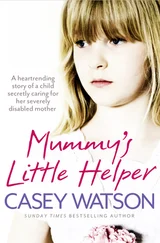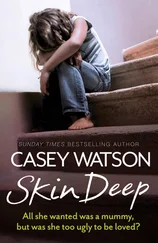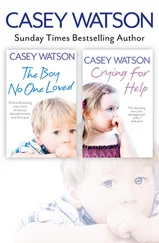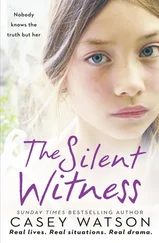So we needed to be patient – though right now I had other things to think about anyway. Having my final cup of coffee, throwing something for dinner into the slow cooker and making sure the house looked the way I wanted it to look when I returned home at the end of the day.
Well, hopefully, anyway. I gave my work shoes a quick polish before slipping them on my feet and grimacing at my reflection in the hall mirror. That was the one major downside of doing what I did – that I had to get so trussed up to do it. Smart black skirt and jacket, black tights, shiny shoes. And a crisp stripy blouse – it was all so not me! I’ve always been much more of a jogging bottoms and T-shirt type, more a ‘bundle my unruly hair any-which-way into a ponytail’ sort of woman than one who enjoys spending hours in front of a mirror blow-drying it and having to wear make-up all day.
But there was no choice, not if I wanted to be seen as a professional. Part of my job involved meetings with fellow professionals – head teachers, social workers, educational welfare staff, educational psychologists – so I had learned quickly what the sartorial rules were. I needed to dress to impress if I was going to by taken seriously – an uncomfortable sacrifice for someone like me. I’d rather spend time with a hundred unruly teenagers than be sat around a conference table with adults of that calibre – intimidating was what it was, even if necessary.
As ever, however, all thoughts of anything other than the job in hand left my mind as soon as I walked through the school gates, and I was greeted by the usual cacophony of shrieks and yells that were synonymous with every Monday morning.
‘Morning, Miss – did you have a nice weekend?’
‘Miss! Brandon Smith’s been telling lies about me!’
‘Mrs Watson, can I come to you instead of doing PE today?’
Smiling at the little crowd that threatened to engulf me, I pointed at the oversized hall clock. ‘We’ll have plenty of time to catch up later,’ I reassured the group around me. ‘And yes, I did have a nice weekend, thank you, but right now it’s time you all got off to registration.’ I grinned at them. ‘And guess what I need?’
‘Coffee!’ came the chorus, as the kids began dispersing. ‘Coffee, Miss, you’re off to get your coffee!’
They weren’t wrong. My love of coffee was almost as well known about me as my love of creating order out of chaos. Not that the staffroom was chaos, exactly, but neither was it a shrine to housewifery. I knew I was regularly the subject of whispers and odd looks as I stood by the drinks-making area in the corner, furiously wiping spills and polishing teaspoons. I’d often wait behind, too, after the bell had gone for classes, plumping cushions and straightening papers and journals. No one ever mentioned it – well, not to me, not yet, at any rate, but I was pretty certain they knew it was me.
There was the usual air of sudden evacuation in the room as I entered, as the assembled teachers – often 25 or so at this time of day – headed to their classes to deal with registration. I, on the other hand, still had half an hour to kill, as the students currently with me would not come to my classroom till after that was over, at around 9.30. I made my coffee, trying to resist the urge to do the washing-up as well. Which was ridiculous; there was a lady whose job it was to come in and do that during lesson time, but it was a challenge for me not to beat her to it.
Still, I resisted. I had plenty to be doing anyway. There were the lesson plans for each child in my unit to be finalised – currently five – plus some writing-up of stuff from the previous day. I did a daily ‘life space’ interview with every child who was with me. It was one of the new buzzwords, and what it actually meant was starting a conversation off with each child and then just listening. Well, not just listening – ‘active’ listening, which was all about helping the child to open up, using emotive prompts such as ‘That must have been upsetting for you’ and ‘What happened then?’
And going by my experience with some of the kids I’d had pass through my hands so far, the answer to that could be anything . Straighteners or not, it could make anyone’s hair curl.
My office was situated on the ground floor of one of the two school buildings, the one that also housed most of the other main offices and the art, sport and drama departments. The second building, which was connected to the first via a long corridor and the main dining hall, was where the majority of the normal classrooms were.
Though ‘office’ was perhaps too fine a word for my new room. In truth, it was an old, long disused, tiny classroom that had once been a learning support room. Back in the day, it had housed 15 or so pupils, and had contained nothing but a few tables and chairs and an elderly blackboard when I first viewed it. The head, Mr Moore, had been surprised that I’d chosen it over the alternatives he’d shown me. There’d also been a large airy office that had once housed Mr Brabbiner, the deputy head, or a laboratory-style classroom with huge built-in desks, an interactive whiteboard and a separate office area.
But no. This was the one I’d wanted. Though it had been both filthy and gloomy when I saw it, what I also saw was loads of potential. And the main reason for that had been the pair of ‘French doors’. Actually a fire exit, they opened out onto a lovely sheltered grassy area, and, best of all, there was no rule that said I had to keep them closed. In short, it had a garden, and I was immediately won over, and asked if I could come in for two weeks before I actually started so I could get the place properly cleaned and organised.
I looked at it now, and smiled. It really was my home from home. I had set aside an area for myself, using a couple of tables to create an ‘L’ shape, and behind that I kept a kettle and cups, everything I needed to make drinks with, plus a toaster and the thing I had quickly become known for – having always, but always , a supply of biscuits.
I’d had the caretaker paint the whole room a sunny shade of yellow (which was about as outrageous a hue as the council allowed), and made brightly coloured frames which I hung on all the walls to house the works of art I didn’t doubt I’d soon be getting. With the garden in mind (I had ambitious designs on that too) I also made an area for plants and seed potting. That initiative, too, got me a few choice looks from colleagues, as I lugged bags of compost down the corridors.
Finally, I installed a radio, and a chill-out area come mini-library, complete with a low table and some luridly patterned bean bags.
Only then did I arrange study tables and chairs in the centre, in what space was left available for the purpose. This was a classroom, no doubt about it, but it was so much more than that. It was to be a place where troubled kids could properly chill out and feel relaxed, whatever the reason for them being in my ‘office’. And that mattered. It was so much easier to talk to a relaxed child than a stressed one that, though I did wince when I saw how much I’d spent from my meagre budget, I didn’t feel guilty. I felt justified. I’d made it as it should be.
My gang of ‘regulars’ arrived with the usual kerfuffle. Kids came and went, obviously – some would be with me for just a lesson or two – but a few were with me full time during any given week. I had five of those with me currently, and they couldn’t have been more different. I had three year 7s – new to the school, still finding their way for various reasons, and two year 8s who’d both come to me last term.
First in, and most challenging, was Henry. Aged 13, he was in danger of permanent exclusion due to his disruptive and frequently violent nature. He’d already been excluded from lessons by almost all of his teachers, and coming to my ‘Unit’ (not my name of choice – I hated labels, but it had well and truly stuck now) was a last-ditch attempt to get him to settle down sufficiently that he could stay in mainstream education.
Читать дальше












